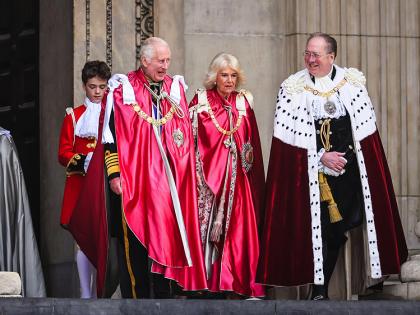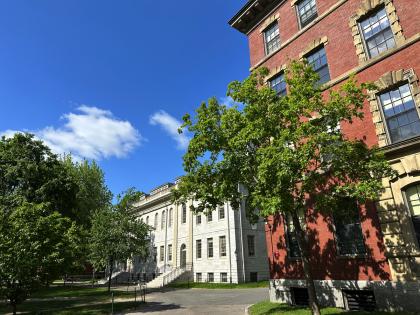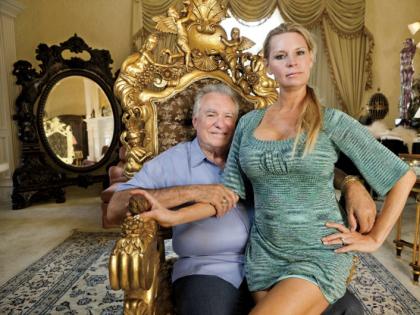Daniel Joseph Wilner, 2007 graduate, delivers the Undergraduate English Oration titled “Daring to Choose” for Harvard's 356th Commencement Exercises.
(Speech as prepared)
"If only someone would just tell me what to do!"
This was the sentiment my friend Genzie expressed to me a few weeks ago. Genzie was not in the grip of a particular decision. She was decrying having to make decisions at all. She wished there could be some sort of machine with two lights - one green, one red - that would tell her what to do when faced with a choice. "You mean, like a traffic light?", I asked. "No," she replied. "More like my mom when I was fourteen."
I could appreciate Genzie's exasperation. When I first arrived at Harvard, my feverish excitement soon turned to fret. My fingers tightened with anxiety when I first opened the course catalogue. Everything just looked so good. How was I supposed to select a mere four courses from this banquet of appetizing dishes? And what about the vegetables - the courses I did not really want to take but thought that maybe I should?
Feeling a bit lost, I called home for advice, but I did not find the answers I was looking for, the kind of solution Genzie had in mind. I remember telling my grandmother that I was thinking of taking a class on Plato. "Well, philosophy's nice," she said, "but what are you going to do with it?" "I don't know, Bubby," I replied. "What do you think I should do?" "You don't know?" she exclaimed. "I thought people who go to Harvard are supposed to know everything." But I did not know everything. In fact, I felt like I did not know much of anything at all, certainly not how to live by Harvard's lofty motto of "Veritas." How could I know how to be true to myself when there was just so much to choose from?
I imagine that you too have discovered that what makes Harvard so tremendous is also what makes it terrifying. So boundless are its intellectual resources, so diverse and compelling its students and faculty, that one can hardly go about one's day here without thinking in stark economic terms. For every class or activity or dinner companion one chooses, there are hundreds of others just as good that one might be missing out on. And things do not promise to improve now that we are graduating. We hear cries for help all around us; we want to give back to our families; we feel within us the stirrings of passion for what we want to do. With so many pressures from so many places, it is a wonder we can ever choose to do anything. Once, when I was home for vacation, I remember telling my ophthalmologist about everything I was doing at Harvard. He thought for a moment, and then he said, "Well, you have all these wonderful choices; you'll probably end up being a bum."
My opthalmologist, with his uncannily clear vision, helped me understand something important. The question is, How can we ever decide to do anything without fearing we are fools for not doing something it excludes? What I have learned here is that this problem need not paralyze us. Instead, we should see it as an opportunity, one that Harvard has offered us every day: it is the opportunity to ask our own questions and find our own answers. You see, my friend Genzie imagined that a machine that told her what to do would spare her a great deal of worry. But, in fact, she would have denied herself the chance to live - to be living her own life, a life true to her.
So how can we seize this opportunity? How are we to find the voice of our own authentic agency?
Perhaps we could ask ourselves this: What are those things that we could never regret doing? They are the things that make you feel most realized, most empowered, most like you. They are the things so important that they are worth the price you will have to pay for choosing them. E. B. White concludes his stirring book Here is New York with the following words about his beloved city: "If it were to go, all would go - this city, this mischievous and marvelous monument which not to look upon would be like death." White found his indispensable city, and at this indispensable university, I hope you have begun to find those things so vital to you that not to do them would be like death.
And so my fellow graduates, as we look forward to our lives after this place in all its overwhelming liveliness, we no doubt feel a sense of loss and a sense of fear, the same sorts of feelings we had when we first came here. Will we still be able to find our way? Will we choose correctly? Will we find our voice, our truth? But in all this worry and wondering, let us remember what we have learned here. Let us remember that Harvard has taught us, perhaps above all else, to dare. To dare to ask ourselves the question of how we want to live, and to ask it in such a way that we really mean to answer it for ourselves. It is a question that no machine and no person can ever answer for us.
May your days be full of mischief and marvel, and may we each dare to live a life that is truly our own.








